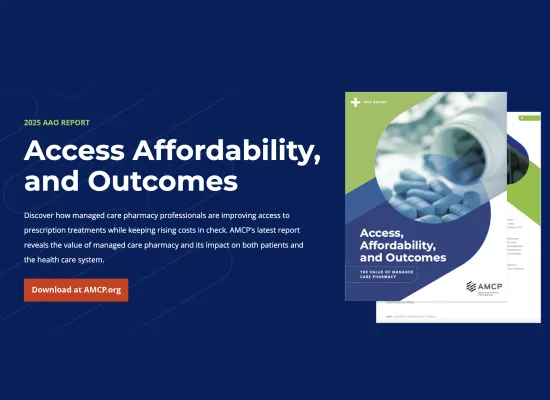
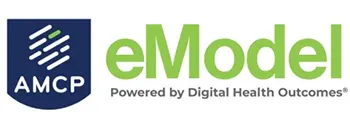
AMCP eModel is the ultimate tool for communication of health economic models and value evidence. Find out more about the new ePoster offering through this tech partnership and platform to support the exchange of clinical and economic information between pharmaceutical companies and payers.

AMCP partners with FormularyDecisions to enhance information sharing and formulary decision-making by creating a platform for current, credible, and compliant information exchange between life science companies and active, qualified healthcare decision-makers.
Featured

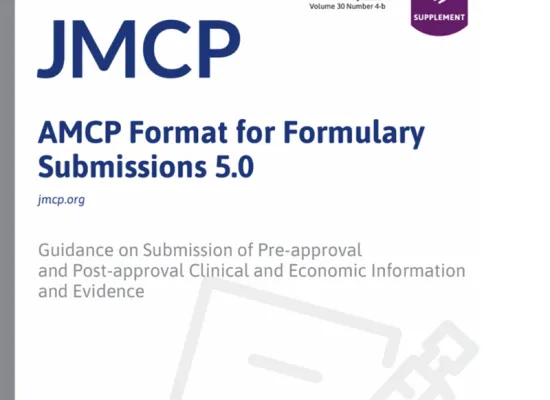


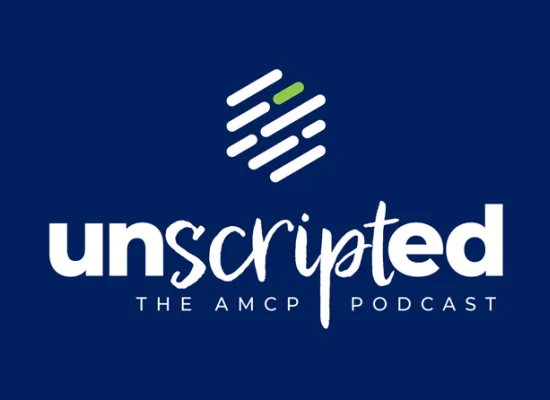

-
Health Information Technology Resources
-
Digital Therapeutics Resources
-
Health Disparities Resources
-
Value-Based Contracts Resources
Meetings Proceedings & Findings
View More
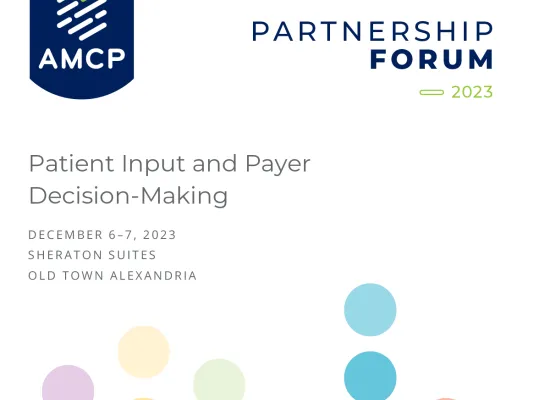

Latest News & Resources
Press Release: Opioid Prescribing in Georgia Medicaid Program: Potentially Inappropriate Practices are Increasing, According to a Study in JMCP
AMCP webinar that reviewed a summary of discussions from this summit.
AMCP webinar that reviewed a summary of discussions from this summit.
Market Insights Program: AMCP convened a group of experts on hemophilia to identify areas for more efficient care delivery.
Press Release: AMCP Foundation Adds Two New Members to Board of Trustees
Market Insights Program: AMCP convened industry experts to discuss the current management of psoriasis.
AMCP webinar that reviewed a summary of discussions from this summit on managing psoriasis.

Report summarizing findings from a meeting on managing psoriasis.
Report summarizing findings from a meeting on managing psoriasis.
AMCP letter to E&C Chairman Walden and Ranking Member Pallone
Letter in support of state legislation on mandatory e-prescribing of controlled substances.
Press Release: AMCP Launches New Addiction Advisory Group (AAG) to Address Opioid Crisis Through Promotion of Best Practices, Innovative Care Models and Benefit Designs
